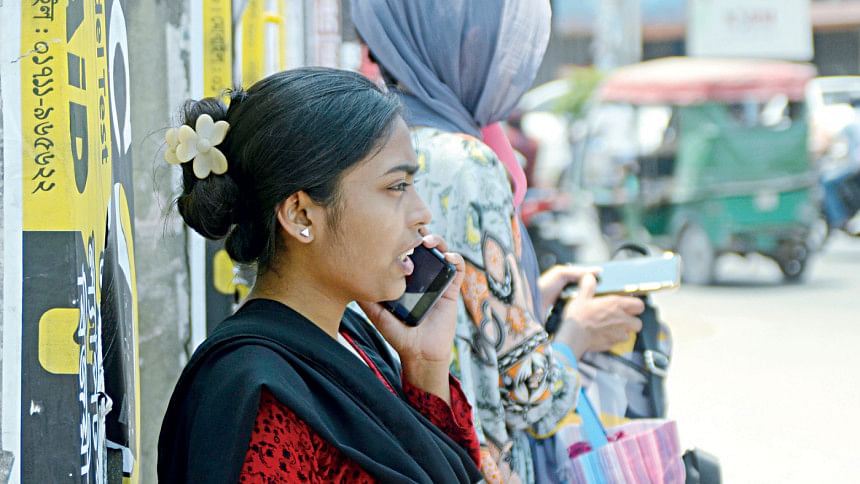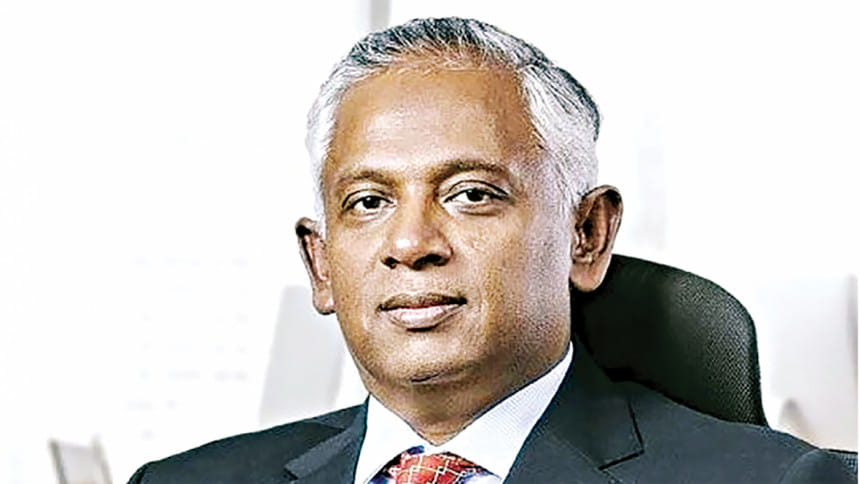Telecom reforms for a smarter future

The shift from "Digital Bangladesh" to "Smart Bangladesh" was like trying to drive a car without an engine — all talk, little substance. While we have made big claims on paper, the reality was far from impressive. While waving the "Digital Bangladesh" flag, we ranked 105 out of 132 in Global Innovation Index 2023 (Source: World Intellectual Property Organization).
For over a decade, our telecom policy had been mainly benefiting a few powerful business groups, favouring political allies over real progress. As president of the Association of Mobile Telecom Operators of Bangladesh, I had grave reservations against critical resources of mobile operators being given away to political allies by regulators. Instead of making policies to advance digital growth, the focus was more on facilitating a selected few. Many of these policies were as corrupt as the regime itself, prioritising personal profits over the country's digital future.

According to ICT Development Index (IDI) of International Telecommunication Union of the United Nations, Bangladesh ranks 62 out of 100. The average IDI score for the 170 economies is 74.8. For 91 economies, the score is above 80. That puts Bangladesh among the bottom 38 economies. Worse still, Bangladesh ranks 111 on the E-Government Development Index (United Nations Educational, Scientific and Cultural Organization), and 75 on "E-Participation Rank". Bangladesh scores below 60 percent in "Mobile Internet Subscribers" and 6.1 percent in "Fixed Internet Subscribers".
The wish of the interim government's chief adviser to reduce data prices is certainly achievable by modifying policies and eliminating political beneficiaries. It is crucial not to compromise on key principles, viz 1) no loss of government revenue, 2) attract foreign direct investment (FDI), 3) remove the influence of past beneficiaries to share that benefit with the government and other stakeholders, and 4) reset policies to regain lost momentum. Given the industry's crucial role in revenue, FDI, socio-economic progress, and transparency, any approach that reduces government revenue or FDI is unsustainable.
Unified licensing for a better future: a three-tier model
A new three-tier licensing model is proposed to address the evolving needs of the telecom industry and ensure better service delivery. This model aims to streamline services, improve quality, and align with regional best practices, and thereby potentially transforming the telecommunications landscape. The three licensing layers are as follows:
1. Access network service: This layer provides end-users access to telecom networks to meet their communication needs, including voice and data. Licensed operators such as mobile network operators (MNOs) and internet service providers (ISPs) would serve customers directly under this licence. Even mobile virtual network operators (MVNO) should be considered here.
2. Infrastructure service: This layer (nationwide telecommunication transmission network (NTTN), tower, submarine cable) would offer transmission services to MNOs, MVNOs and ISPs, ensuring the seamless flow of voice and data among customers. More will be discussed in Part 2 of this article.
3. Services and content: This layer would provide digital services beyond traditional voice and data offerings. It would encompass content providers, focusing on delivering enriched digital experiences to customers.
The above should facilitate optimising and licensing 2900+ licences in 29 categories. Licensees may be allowed to acquire multiple licences following regional best practices. Significant Market Power (SMP) should be implemented in each category for balanced growth.
Immediate reforms and long-term strategy
A swift reform could involve removing International Gateway Operators Forum (a forum of internet gateway licensees) within a month, eliminating discriminatory revenue-sharing and enabling call terminations at actual rates, benefiting all stakeholders. A more comprehensive reform, like restructuring licensing layers, would require cancelling or non-renewing licences, a complex process owing to existing conditions. Finalising the revised policy now would enable a smooth transition by 2027, fostering a more efficient and competitive telecom environment that enhances digital connectivity and consumer benefits. All these are only possible if the regulator is empowered and independent.
Scrap voice floor price
The voice floor price in Bangladesh should be eliminated to support the shift from voice-based to data-driven communication. While initially intended to help the MNOs, the floor price now hinders affordability and digital adoption. Most countries no longer charge for voice and SMS. With voice still making up 50-60 percent of the MNO revenue due to such support, the voice floor should be removed, and the MNOs should be given the same freedom as smartphone manufacturers and importers to drive data adoption.
Removing the voice floor price can drive competition, reduce communication costs, and make digital services accessible for all. Moreover, it will push everyone to focus on data consumption and penetration. The monthly data consumption in Bangladesh (5.5 GB) is one of the lowest in the region. India's Jio model proves that data & device inclusive packages can uplift both urban and rural communities without relying on voice revenue.
The government could consider introducing differentiated taxes on data and voice revenues to support this transition without losing revenue. The MNOs may strongly oppose this move, arguing that it would negatively impact low-income users. However, the reality is, such a policy threatens to leave the underprivileged trapped in the analog era, while the wealthy continue to enjoy the benefits of the digital age.
Hence, while the promises of telecom transformation sound fantastic, much of the groundwork is yet to be laid. It is time to trade the fancy slogans for real reforms, ensuring our progress is not just on paper. After all, it is always harder to glide into the future when we are held back by the past.
The author is the founder and managing director of BuildCon Consultancies Ltd

 For all latest news, follow The Daily Star's Google News channel.
For all latest news, follow The Daily Star's Google News channel. 



Comments